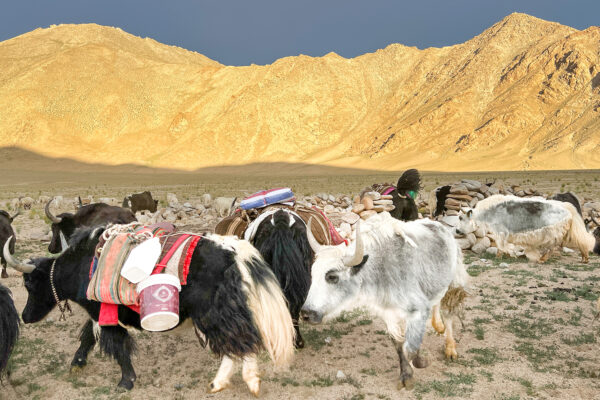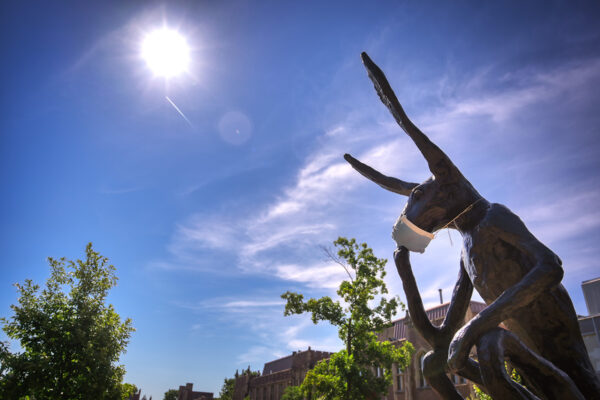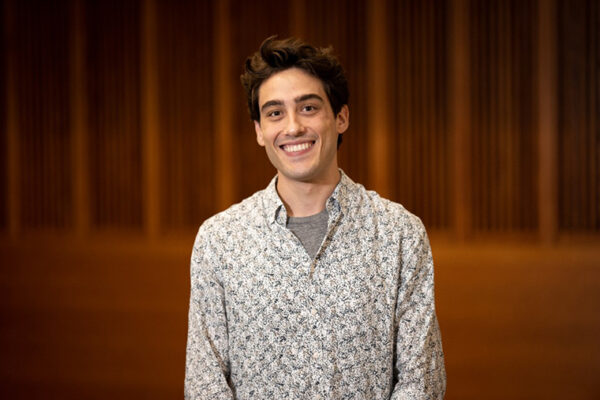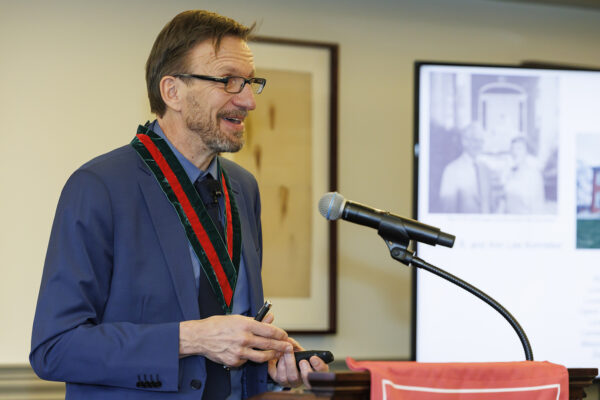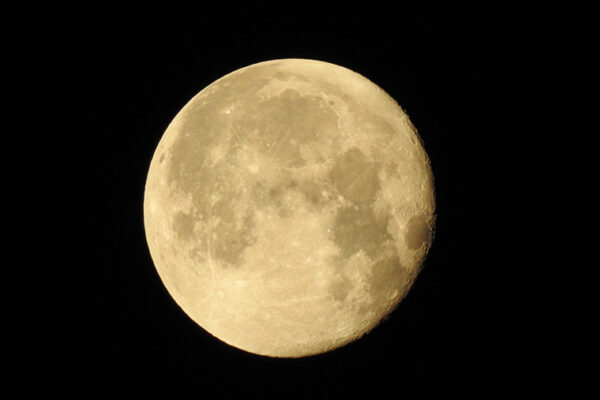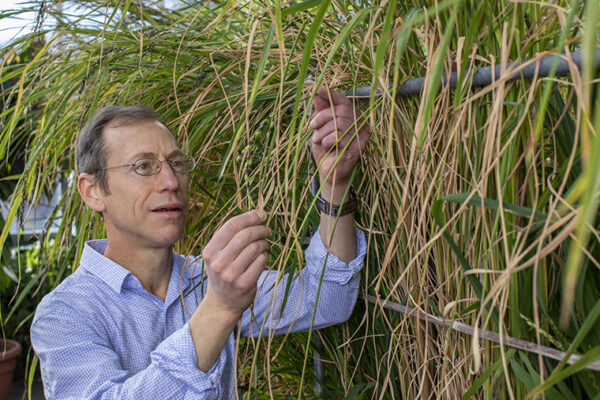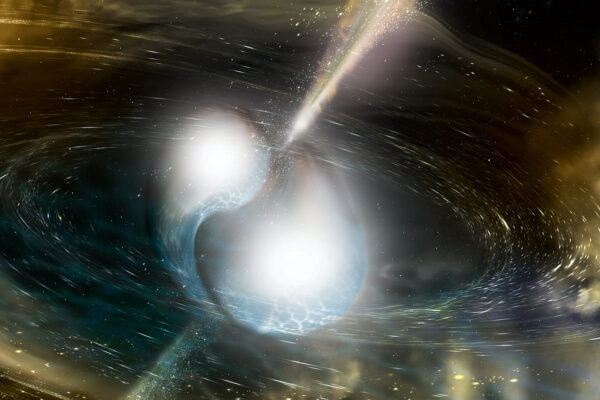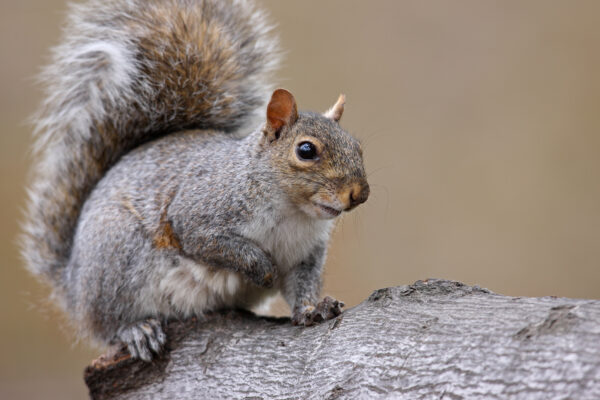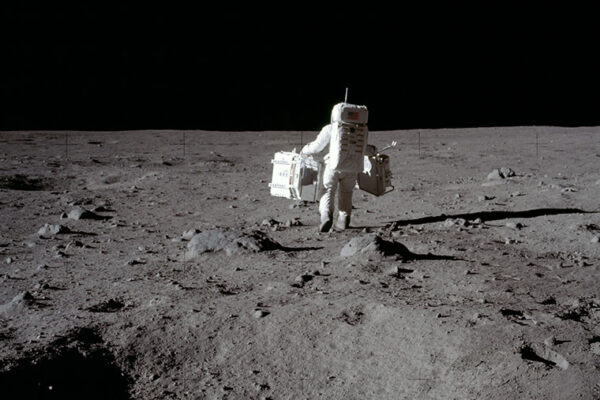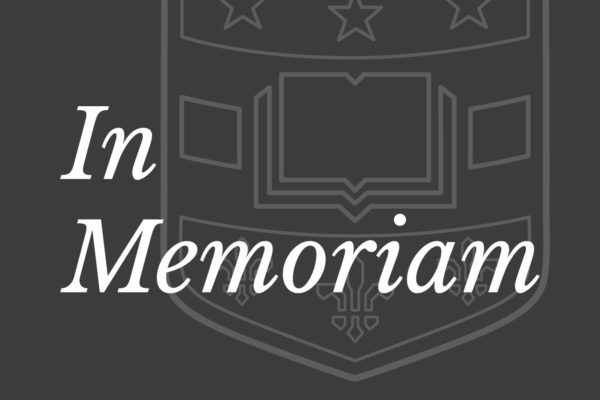Movement of crops, animals played key role in domestication
Over the last 15 years, archaeologists have challenged outdated ideas about humans controlling nature. Writing in the Proceedings of the National Academy of Sciences, Xinyi Liu in Arts & Sciences argues for a new conceptual bridge connecting the science of biological domestication to early food globalization.
Pandemic course improved COVID-19 knowledge, study finds
A survey of nearly 1,000 people found Arts & Sciences’ course “The Pandemic: Science & Society” led to more accurate risk perception and stronger protective behaviors.
Michaelides wins NASA fellowship for early-career researchers
A $300,000 award from NASA’s Early Career Investigator Program in Earth Science will allow Roger Michaelides, in Arts & Sciences, to track interactions between permafrost and wildfires in a warming Arctic, work that could shed new light on climate change.
Krawczynski installed as Wilfred R. and Ann Lee Konneker Distinguished Professor of Physics
Henric Krawczynski was installed as the Wilfred R. and Ann Lee Konneker Distinguished Professor of Physics in Arts & Sciences during a ceremony Feb. 28 at the Whittemore House. His installation lecture was titled “The Bright Side of Black Holes.”
With NASA support, device for future lunar mission being developed at WashU
Physicist Jeff Gillis-Davis in Arts & Sciences is leading a team that will develop and test an instrument to measure the chemistry of rocks, minerals, soil and ices on the surface of the Moon. The device is small enough to be carried by a rover or other robotic explorer.
Biologist Olsen helps launch global wild rice alliance
Kenneth Olsen, a George William and Irene Koechig Freiberg Professor of Biology in Arts & Sciences, joined researchers from 24 countries in an effort to strengthen cooperation and solve a key problem of improving rice yields.
Finding new physics in debris from colliding neutron stars
Neutron star mergers are a treasure trove for new physics signals, with implications for determining the true nature of dark matter, according to research from physicist Bhupal Dev in Arts & Sciences.
How bias shows up in maps made with citizen science data
When biologist Elizabeth Carlen in Arts & Sciences saw that squirrels were not being reported in north St. Louis, she wanted to know why. Her new paper in People & Nature illustrates how social and ecological factors can create bias in contributory science data.
Space sciences team wins microanalysis award
A team from the McDonnell Center for the Space Sciences won the Microanalysis Society’s Macres Award for the best instrumentation/software paper.
Peter Alan Fedders, professor emeritus of physics, 85
Peter Alan Fedders, a professor emeritus of physics in Arts & Sciences at Washington University in St. Louis, died Feb. 22, 2024, in La Jolla, Calif. He was 85. Fedders was an expert in condensed-matter physics who made significant contributions to the theory of nuclear magnetic resonance.
View More Stories
